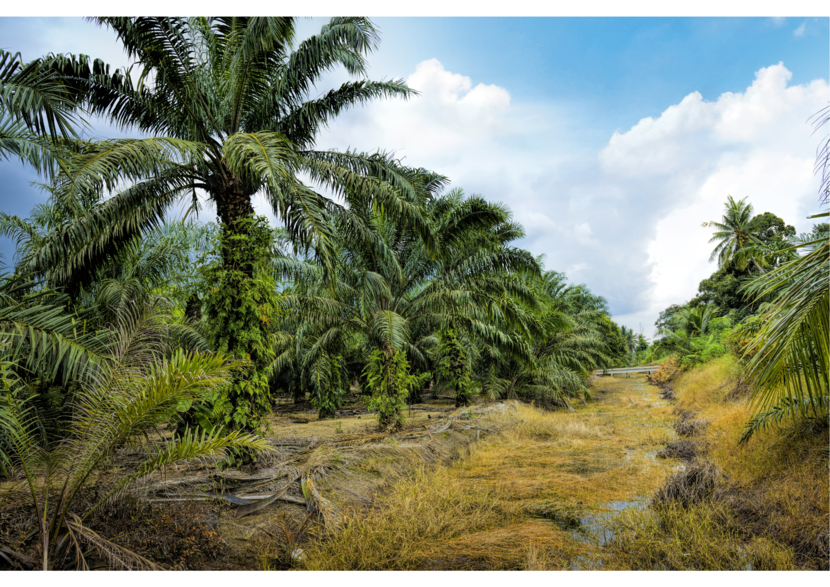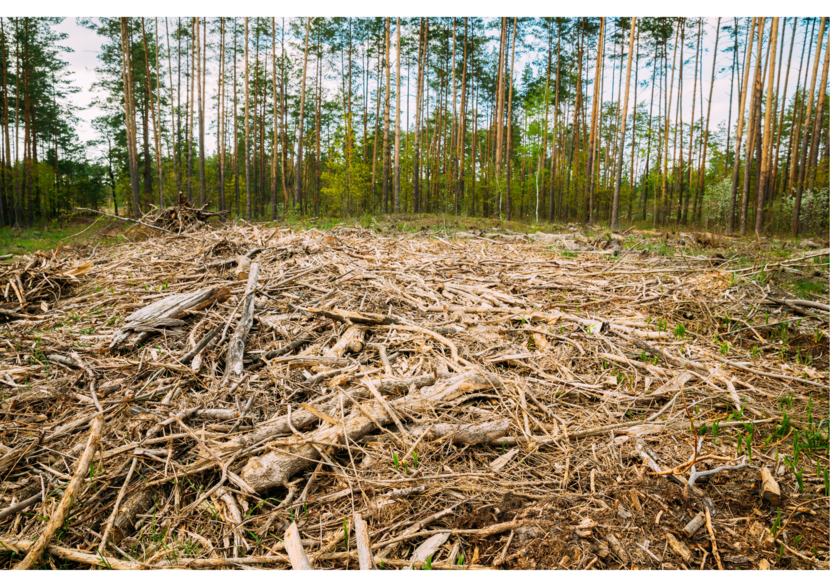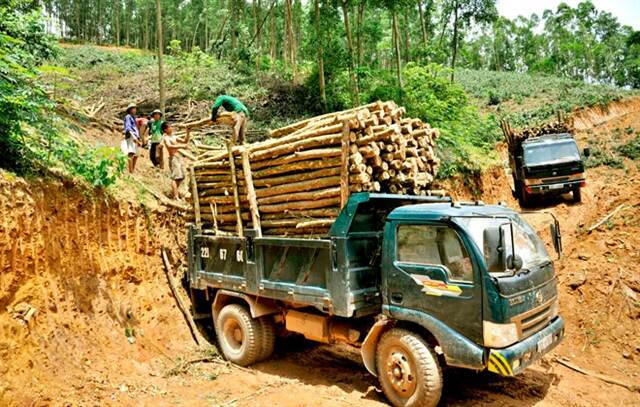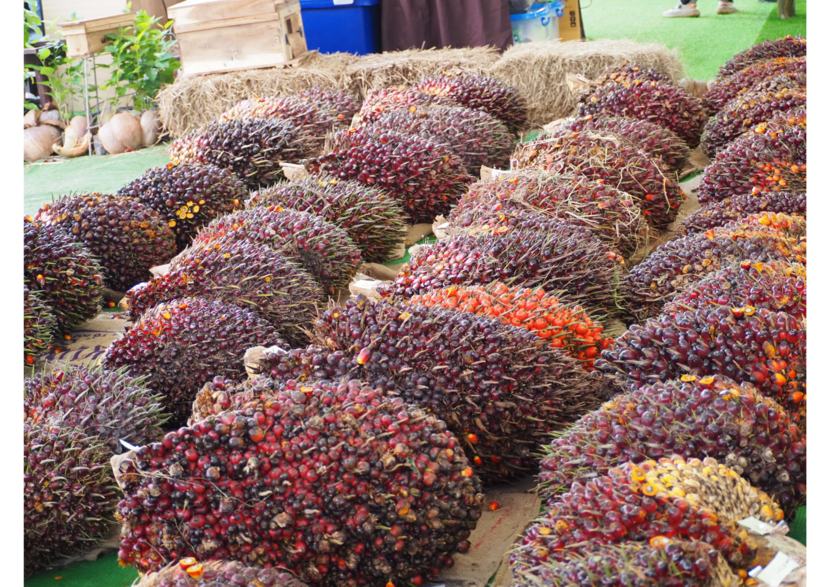EU takes responsibility for deforestation with European Deforestation Regulation
As global deforestation continues to grow at an alarming rate, the European Union (EU) has implemented Regulation 2023/1115 or the European Union's Deforestation Regulation (EUDR), a stringent measure mandating that all commodities such as soy, cocoa, coffee, beef, palm oil, rubber, or wood entering or leaving the EU must be certified as not contributing to recent deforestation or forest degradation. Enacted on June 29, 2023, this regulation is part of the EU's broader effort to combat biodiversity loss and climate change, reflecting its commitment to reducing its global environmental footprint. This article explores the development of this critical regulation, its current implications, and the forthcoming steps to ensure its effective implementation and extension.

For decades, the rate of deforestation worldwide has been alarming. The Food and Agricultural Organization of the United Nations (FAO) in Rome has estimated that 420 million hectares of forests have been lost as a result. Deforestation has a serious negative impact on biodiversity and climate change. One of its key drivers is agricultural production. Although the world’s largest primary forests are not typically found within EU borders, the EU’s consumption patterns have a worldwide impact. To meet the agreed global climate targets, halting deforestation is of the essence. Therefore, the EU sees it as its responsibility to minimize its contribution to deforestation.
First EU response to deforestation in 2008
In 2008, the European Commission put forward a Communication on deforestation that crafted the first policy outlines to stop deforestation. Its main sentiment was to set actions into motion that would ‘provide the foundations for a viable global response to deforestation’. In 2019, the Commission put forward a second Communication to further strengthen the EU policy efforts.
These Communications were also meant to answer repeated calls from the European Parliament as well as the Council of the EU for a more coordinated approach. Together with the Amsterdam Declaration Partnership (ADP) countries [1], the Netherlands has been at the forefront of calling for proposals to end agriculture-related deforestation. In addition, citizens have also been mounting pressure on legislators to curb deforestation. Over one million people responded to the public consultation on the deforestation legislation thanks to the Together4Forests campaign led by WWF
‘European citizens have also been mounting pressure on legislators to curb deforestation’
Swift agreement on legal proposal in December 2022
The European Commission presented the legal proposal in November 2021, which was negotiated and agreed upon by the European Parliament, the Council of the EU, and the European Commission itself by December 2022. A swift agreement. The process involved many meetings and a strong push by the French EU Presidency to agree upon a Council position by the end of its mandate. These negotiations did not go unnoticed in Brussels. For example, during the meeting of the Environmental ministers in March 2022, Greenpeace activists placed a banner on the Europa Building indicating how many hectares of forests were destroyed while the ministers were in their meeting. The interests of the Member States were rather diffuse: while the Netherlands and Belgium played an important role in the European intra-regional trade due to its ports, forest-rich countries focused more on the impact on their small holder timber producers. The Netherlands worked closely together with the EU-member states part of the ADP to ensure an ambitious legal text that also considered the importance of cooperation with third countries.

Actions to facilitate implementation
It is important to note that the success and impact of the regulation are determined by its implementation. The European Commission uses the Multi-Stakeholder Platform on Protecting and Restoring the World’s Forests to promote the exchange of best practices. Also, it has further developed the EU observatory on deforestation and forest degradation that helps in global forest monitoring for businesses, public entities, and consumers.
The European Commission is also tasked to develop a comprehensive framework for engagement with producer countries as well as to engage in dialogue and cooperation with major consuming countries. This is an important element in the regulation to ensure and maintain a good relationship and cooperation with third countries. In spring 2024, European Commissioner for Environment Virginijus Sinkevičius has been traveling to South America and West Africa to foster this engagement. In addition, together with Germany, France and the European Commission, the Netherlands is part of a Team Europe Initiative on Deforestation-free Value Chains that will support partner countries with the implementation of this regulation. The initiative has an initial funding package of 70 million euros.
‘The European Commission is developing a comprehensive framework for engagement with producer countries and other major consuming countries’

Criticism remains despite attempts to minimize worries
Nevertheless, a lot of criticism remains. Producers and national legislators feel stuck in limbo because important details of the regulation, such as the categorization of countries into risk categories (benchmarking), are still not finalized. In addition, producing countries have felt sidelined throughout the process and have labeled the measures as discriminatory and punitive. Recent attempts by the EU to accommodate their worries do not seem to fully fix the strained relationship.

Commitment of the Netherlands and next steps
The Netherlands continues to push for a smooth implementation process, strong cooperation with third countries and clarity for all stakeholders. An example of this is the number of stakeholder meetings organized by the Netherlands with important trading partners to inform them on how to maintain access to the EU market. This is crucial, because the regulation includes heavily discussed clauses that pertain to the review of the legislation.
No later than June 30, 2024, the European Commission shall present an impact assessment and a potential legislative proposal, to extend the scope of this regulation including other wooded land. In addition, by June 30, 2025, the Commission shall present an impact assessment and a potential legislative proposal to extend the scope of this Regulation to other natural ecosystems. It will also address the need and feasibility of extending the scope to further commodities, including maize.
Lastly, the EU has been working on other strands of legislation that may impact the operators and traders of the commodities that fall within the scope of this regulation, such as the Corporate Sustainability Reporting Directive (CSRD), Corporate Sustainability Due Diligence Directive (CSDDD) and the ban on products made with forced labor. This encompasses the legislative framework that stakeholders will need to comply with in the coming years. Strong collaboration amongst all stakeholders is essential to ensure that the framework can deliver on its objectives.
More information
Would you like more information on how the EUDR has come into effect? Please go to the page of the Permanent Representation of the Netherlands to the EU at the website Agroberichtenbuitenland.nl of the Dutch Ministry of Agriculture, Nature and Food Quality. You can also send an e-mail to the agricultural team at the Permanent Representation of the Netherlands in Brussels: bre-lnv@minbuza.nl.
Footnote
[1] Belgium, Denmark, France, Germany, Italy, Luxembourg, the Netherlands, Norway, Spain, United Kingdom.
This article is part of the 11th edition of the e-magazine Agrospecial titled "Impact of EU Deforestation Regulation worldwide" (originally published on June 5, 2024).
In this Agrospecial, the Netherlands Agricultural Network showcases the opportunities and challenges associated with the EUDR from the perspective of the LAN teams. They introduce us to their related work, provide insights into what is happening in their respective countries, and showcase examples of projects and actions the LAN is taking in promoting sustainable supply chains and responsible business conduct. Once again, cooperation is key, the LAN plays a crucial role in this work.